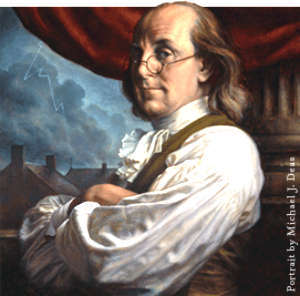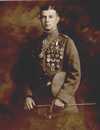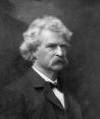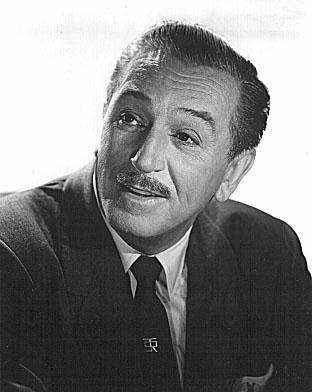The name Benjamin Franklin is so familiar it is almost a cliché. School children are introduced to him as the gray haired man flying a kite in a thunderstorm, or as the contemplative elder statesman sitting in the Pennsylvania State House and advising upon the drafting of the Declaration of Independence or the United States Constitution. Franklin is one of the most famous founding fathers, and after more than two centuries, there are still those who have trouble understanding why. As author Gordon S. Wood wrote of Franklin’s return to North America after the signing of the peace treaty ending the Revolutionary War, “When he arrived in 1785, his fellow Americans did not know what to make of him. They knew he was an international hero, along with Washington the most celebrated American in the world, but they were not quite sure why. He had not led the revolutionary movement like John Adams. He had not written a great revolutionary document like Jefferson. He had not led armies like Washington.”
When writing about or discussing leadership, it is relatively easy for military and political figures to be examined as examples. The reason for this is that their lives are lived very much in conflict and battle, and the principles of leadership that apply to “every day” life are seen in broader relief in the context of extreme and dangerous circumstances. This is why so many leadership books, including our own, are filled with generals and statesman. Examining Benjamin Franklin as an example of leadership principles is not so straight forward, however. Seeing his genius in the leadership category requires a little deeper inspection. But the reward for this extra effort is one of the richest and most motivating examples of leadership one can find.

The life of Benjamin Franklin can best be summarized by breaking it into three distinct phases. In the first phase, Franklin was a businessman. As most everybody knows, he rose from obscure and humble beginnings (a much larger barrier to advancement in those days than it is in ours) to become what we would today call a multi-millionaire. He worked hard, had a great mentor and patron, and learned his trade (printing) well. He became not just a wealthy printer but a sophisticated entrepreneur. He was involved in the establishment of over eighteen paper mills, owned an extensive portfolio of rental properties, was a creditor to other business owners, and was involved in setting up other print shops on the model of his first one in Philadelphia. He also became a famous writer during this same time. He used his abilities and efforts to establish businesses that he could safely leave to the conduct of others, and by the age of forty seven he was free to pursue other things. In the second phase of his life, Franklin was a philosopher and scientist. Although he had been sent to England as the colony of Pennsylvania’s ambassador to the English throne, his passion was scientific thought and discovery. He became an esteemed member of the Philosophical Society in London and was world famous for his real contribution to the understanding of electricity. He also invented the Franklin stove, bifocals, an instrument for which Mozart created a musical score, and an almost endless list of contraptions. During this time, of course, he continued to write. It was in this second phase of Franklin’s life that he was the most happy. He was famous, well-respected among his peers, dined with Kings and Lords all over Europe, and was friends with most of Europe’s esteemed minds of the day. He fully expected to live out the rest of his life in England, and couldn’t even be compelled to sail home for the marriage of his only son, the birth of his grandchild, or the waning health of his wife. But circumstances and his own convictions thrust him into the third phase of his life; that of a patriot and American “founding father.” He would sail home in 1775 and become one of the most passionate patriots in the Revolution.
It is in the dramatic circumstances of Franklin’s transition from the second phase of his life into this third phase that most demonstrates his leadership ability. What transpired would change his life, and the course of American history, forever.
Franklin was slow to comprehend the forces of change that were swirling in the North American colonies. The violent reaction in North America to the 1765 Stamp Act shook caught him by surprise. He had trouble understanding the feelings of repression brewing back home. But an event took place that brought him into the revolutionary spirit with fervor.
By this time he was not only the representative of Pennsylvania to the English government, but of several others as well, including Massachusetts. Somehow a pack of private letters from the Massachusetts lieutenant governor Thomas Hutchinson got into Franklin’s hands. In the letters, Hutchinson was imploring the British government to take more control of the colonies so that they would remain dependent on England. Franklin sent these letters to officials in Massachusetts with the intent of demonstrating that the problems with the mother country were not official English policy, but the machinations of a few bad apples such as Hutchinson. In the words of Wood, “This was a gross miscalculation, for the letters he sent to Massachusetts only further inflamed the imperial crisis. Contrary to much conventional wisdom, Franklin was not at all a shrewd politician or a discerning judge of popular passions, certainly not of the prerevolutionary passions of these years.” The letters were printed in Boston newspapers. Word soon got back to England about the Hutchinson letters and Franklin’s involvement in the affair finally became public once Franklin stepped forward and admitted to his involvement in order to stop a duel between others involved in accusations. Franklin firmly defended himself by saying that the letters weren’t private, but from public officials about public matters. As author H.W. Brands wrote,
“If any in England expected repentance [from Franklin] they certainly did not get it. Franklin’s assertiveness condemned him the more in the eyes of those who considered Boston a nest of sedition and judged all who spoke for Boston abettors of rebellion. Until now Franklin – the famous Franklin, scientist and philosopher feted throughout the civilized world – had been above effective reproach. His admission of responsibility for transmitting the purloined letters afforded his foes the opening they had long sought.”
Meanwhile, the Massachusetts House had petitioned the government in England to remove Hutchinson from his position. Franklin was called to the Privy Council hearing on the matter. The opposing counsel was not just a lawyer, but a man named Alexander Wedderburn, the solicitor general. Wedderburn was feared for his acidic and combative style and his lack of scruples when it came to his own political ambition. Brands wrote, “Franklin had hoped to argue for Hutchinson’s dismissal on political grounds; the appearance of Wedderburn indicated that the government intended to mount a legal – and personal – counteroffensive. Moreover, the target of the counteroffensive would not be Massachusetts but Franklin.” Seeing this, Franklin asked for legal representation and was granted three weeks before the Privy Council would reconvene. It is here where Franklin, normally the master of timing, became its victim. Between the first and second Privy Council meetings, the Boston Tea Party took place. This event shocked London and confirmed for most that the inhabitants of Boston were rebels, making Hutchinson look like a heroic defender of the British interests in a hostile environment. Furthermore, and bad news for Franklin, the Boston Tea Party had outraged officials in London, and Franklin was the on hand to feel the brunt of their wrath.
The second Privy Council meeting was a public spectacle, and very unlike normal, was overwhelmingly well attended. The large hall, called the “Cock Pit,” was filled with dukes and viscounts and sirs and members of Parliament, including the Prime Minister. Forgetting any pretense of the purpose of the original meeting, solicitor general Wedderburn launched into a tirade against Franklin that was so severe, so slanderous, that most of it was deemed unfit for print. He attacked Franklin’s character, his intelligence, his loyalty, his reputation, and made statements such as, “I hope, my Lords, you will mark and brand the man . . . . He has forfeited all the respect of societies and of men.” As the diatribe continued, the audience laughed and jeered at Franklin’s expense. Franklin sat motionless and silent, refusing to change even his facial expression. Wedderburn continued by blaming the rebellious colonies on Franklin by saying, “these innocent, well-meaning farmers, which compose the bulk of the [Massachusetts] Assembly,” were not responsible for the rebellion. Instead Franklin was the “first mover and prime conductor, the actor and secret spring, the inventor and first planner.” This was quite a charge in itself, since Franklin hadn’t even been there in years!
Franklin maintained his composure. Wedderburn continued, feeding off the growing approval of the crowd, getting louder and more belligerent. On and on he went. Although his expression betrayed his feelings, Franklin grew hotter and hotter. He sat rigid and frozen, however. Eye witness Edward Bancroft wrote, “The Doctor was dressed in a full dress suit of spotted Manchester velvet and stood conspicuously erect without the smallest movement of any part of his body.” Wedderburn continued for over an hour, and when he had finally finished, Franklin refused to speak.
Two weeks later Franklin was still fuming. He was angrier for the public principles violated than for his own sake. He wrote to a friend,
“When I see that all petitions and complaints of grievances are so odious to government that even the mere pipe which conveys them becomes obnoxious, I am at a loss to know how peace and union is to be maintained or restored between the parts of the empire. Grievances cannot be redressed unless they are known; and they cannot be known but through complaints and petitions. If these are deemed affronts, and the messengers punished as offenders, who will henceforth send petitions? And who will deliver them? Where complaining is a crime, hope becomes despair.”
Following the events in the Cock Pit, the government moved to remove Franklin from his long-held and prestigious position of deputy post master. According to Brands, “Such action was discreditable in itself; it was even more pernicious in its prospect. Appointments to the post office . . . were being held hostage to adherence to the policies of whatever ministry happened to hold power.” In other words, disagree with those in power, and they would use their power to break you. It was a classic case of “shoot the messenger.” But the English government didn’t stop there. It immediately passed the Boston Port Act, effectively closing Boston down to commercial trade. This outrage was followed soon thereafter by the Massachusetts Government Act, the Administration of Justice Act, the Quartering Act, and the Quebec Act. These acts would come to be called the “Intolerable Acts,” and would represent a point of no return in the conflict. In the following weeks the colonies began sending delegates to an emergency continental convention.
To Franklin’s credit, he hung around London for some time afterwards, and used all his skills and connections to get motions into Parliament attempting to reverse the path toward war with the colonies. Two of these motions became official, and both were defeated. Regarding the bullheaded charge of the officials in the English government down the path toward war, Edmund Burke said, “A great empire and little minds go ill together.”
Finally, having lost all hope of finding cooler heads to prevail, Franklin sailed for North America. Wood wrote, “Franklin had had his deepest aspirations thwarted by the officials of the British government, and he had been personally humiliated by them as none of the other revolutionaries had been.” The Franklin that stepped ashore in North America was a vastly different man that the one that had departed so many years before. This Franklin was a man on a mission, with a clear view of how things really stood with mother England. He had been there. He had seen it for himself. He had exhausted every bit of self control and diplomacy he could muster in the cause of maintaining harmony and justice between the two sides. And he had suffered personally for his attempts.
In the decade to follow, Franklin would be as instrumental in the success of the War for Independence as anyone. He would spend eight years in France as ambassador to King Louis XVI. He would leverage his international fame to garner good will and connections. He would hone his “folksy American” image to further his objectives. He would befriend the high-born, the nobles, and the many courtiers of Louis’ court. He would patiently and persistently build a bridge of trust between himself and the French government. And finally, after years and years of painstaking effort, managing the squabbling ambassadors the colonies sent to help him, Franklin would accomplish his coup de grace. He would forge an alliance with the mighty French government on behalf of the fledgling colonies. The day he signed the former papers of alliance with England’s only worthy rival, Franklin showed up wearing the same exact suit he had worn that day years before in the Cock Pit. He had not forgotten. He had gotten the final laugh. According to Wood, “[Franklin] was the greatest diplomat America ever had. Not only did he bring the monarchy of Louis XVI into the war on behalf of the new Republic, but during the course of that long war he extracted loan after loan from an increasingly impoverished French government. No other American could have done that.” The money and munitions given by the French, followed by troops and finally ships, were irreplaceable in the colonial victory in the Revolutionary War. Without such support, Washington and his battered troops and Congress and its empty coffers would never have made it.
In the broad swoop of this story the leadership lessons to be learned from Benjamin Franklin are numerous. First of all, he reversed his position on the rebellion growing in America when new information presented itself. Next, he risked his reputation and world renown, and even a secure financial government post, by getting involved in the politics of the colonies’ unrest. He handled himself with dignity under outrageous circumstances, and didn’t allow his personal pain prevent him from making further overtures of peace. But once he saw the truth for what it was, he became a fervent champion of its cause. As a true leader, he could not stand to leave the status quo the status quo. Injustice was wrong, and no amount of personal prestige or comfort would be enough to make him “play it safe.” Franklin was also patient, and never lost sight of the big picture, working steadily and methodically for years to accomplish his master stroke. To use military terminology, Franklin kept his view at the high “campaign” level, rather than get distracted at the detailed “battle” level. If leadership is influence, Franklin had droves of it: he found his way through a complicated French society and influenced a monarchy to support a rebellion attempting to overthrow another monarchy. That’s influence. If leadership is having vision, Franklin was a giant. Arriving back in the colonies in 1775, most historians agree he was among the first to realize that it was independence or nothing. While others clamored for middle ground and appeasement Franklin counseled whole hearted resistance.
In the end, Benjamin Franklin is noteworthy for so many things he is almost an intimidating figure peering through history at the rest of us as though we could and should do more. But towering above his wide range of accomplishments is the legacy of freedom and independence he helped usher into existence. His greatest achievement did not come from his scientific mind, or his inventive tendencies, or his philosophical wisdom. Franklin’s greatest contribution came from his role as a leader. Anyone studying leadership and aspiring to utilize God’s gifts to the fullest extent would be wise to study his example.
This article was originally posted at https://chrisbrady.typepad.com/my_weblog/2007/10/benjamin-frankl.html.
 Every time we take a young child’s hand, we are called to lead. Every time we are asked for advice, we are called to lead. Every time we are looked to for our example, we are called to lead. Any crisis that arises in our life is a call to leadership. Any time we are asked to compromise our principles, it is a test of leadership. In fact, in many ways, each of us is leading others every day without even realizing it. The question becomes whether we will rise to the challenge or shrink from it.
Every time we take a young child’s hand, we are called to lead. Every time we are asked for advice, we are called to lead. Every time we are looked to for our example, we are called to lead. Any crisis that arises in our life is a call to leadership. Any time we are asked to compromise our principles, it is a test of leadership. In fact, in many ways, each of us is leading others every day without even realizing it. The question becomes whether we will rise to the challenge or shrink from it.







